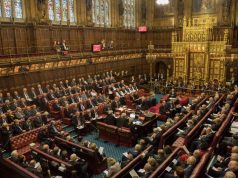
“A battle is brewing over who will run the wasteland” of Gaza, as we approach the two-year anniversary of the 7 October attacks, said The Economist. “By rights, no one should want” Gaza, nor the task of running it after being reduced to a “hellscape”, where “half a million” people were forced out of Gaza City last week.
But the figure who has emerged as a serious, if controversial, candidate for post-war leadership is the 72-year-old former British prime minister Tony Blair. Under plans reportedly backed by the US, Blair would take charge of a “supervisory body” called the Gaza International Transitional Authority, to serve as the “supreme political and legal authority” for up to five years, said The Independent.
The former PM has been drafting a “plan for the days after a ceasefire in Gaza with Jared Kushner”, Donald Trump’s son-in-law. Blair met Kushner, along with the US president and his special envoy Steve Witkoff at the White House in August to discuss matters, said The Times. According to reports, this plan involved Blair heading a secretariat of up to 25 people “running the territory”.
What did the commentators say?
With years of experience in the region, acting as a Middle East peace envoy for the “Quartet” (the United Nations, European Union, United States and Russia), Blair and his plan “may be Gaza’s best hope”, said The Telegraph.
His position is unique. Critics believe his involvement in the Iraq invasion means he “may not be the obvious name to turn to”, but he is “one of the few international figures to be respected by both sides”. This could be a “fitting final chapter” for Blair, who has long been searching for a “meaningful role” since his time in office ended in 2007.
However, Blair’s impact in the region is far from untainted. His decision to commit British forces to Iraq in 2003 was “heavily criticised” in the official inquiry, revealing that he acted on “flawed intelligence”, carrying out offensives “without certainty about the production of weapons of mass destruction” in the region, said the BBC.
The plan is not without opposition and it will “face an uphill battle getting the extreme-right members of Israel’s cabinet on board”, said The Independent.
Reports suggest the “Blair plan” is “anchored on the dismantling of Hamas”. The Palestinian Authority (PA) would “have a role” in the transitional administration, “albeit a diminished one at the start”.
However, both European and Arab states are against “international trusteeship” in Gaza, fearing it could “marginalise the Palestinians and lack legitimacy in the eyes of Gazans”, said the Financial Times. Instead, Gazans seek a committee run by “Palestinian technocrats”.
What next?
Echoes of the Balfour Declaration of 1917 still ring, said The Economist. Then, British forces “conquered Gaza, quickly… and stayed there for 30 years”. Some Palestinians fear “Britain is repeating the exercise”.
With a reputation that “hardly endears” Blair in the region, gaining approval from PA President Mahmoud Abbas “will be hard”, as authorities anticipate that “another occupation beckons”.
The Blair plan is based on the presumption that there will “be no further Israeli annexations in the West Bank”, said The Guardian. To complicate matters further, “much might rest on the definition of annexation”: unless this can be achieved, we may be left with a “diplomatic mirage” instead of an international “breakthrough”.
Former PM is a key figure in plans for a post-war Palestine and could take up a formal leadership position





